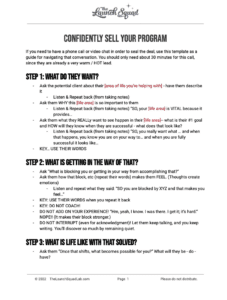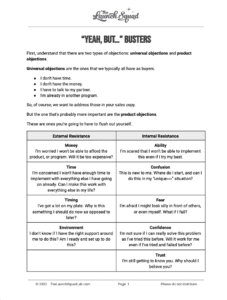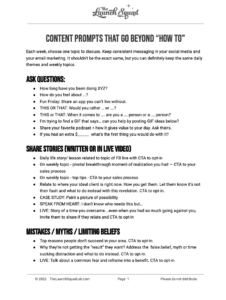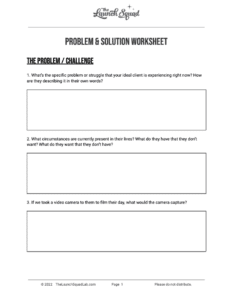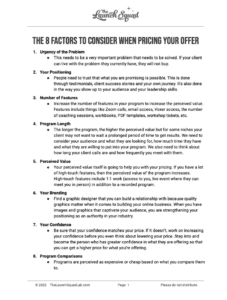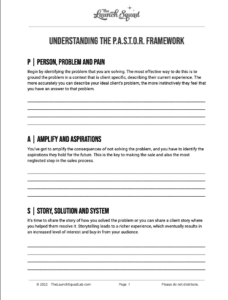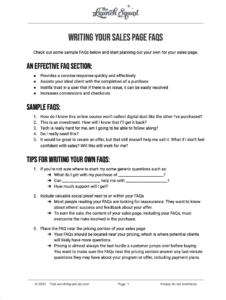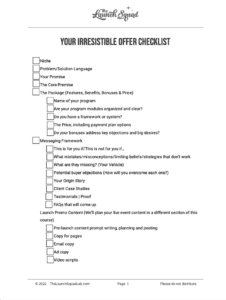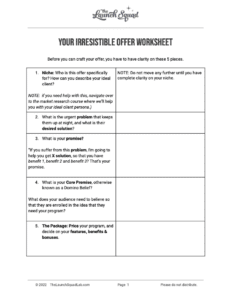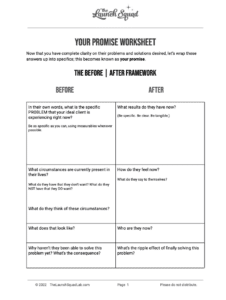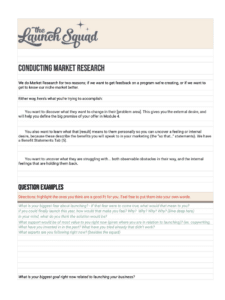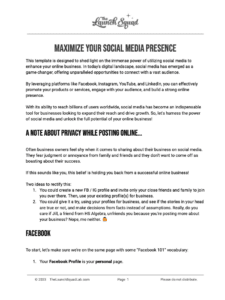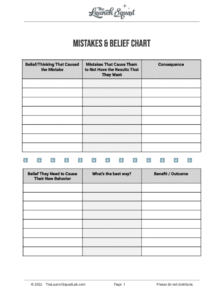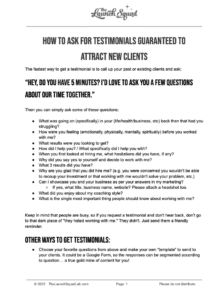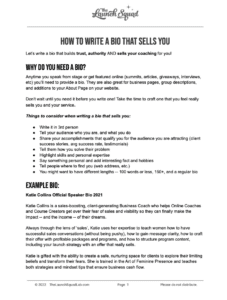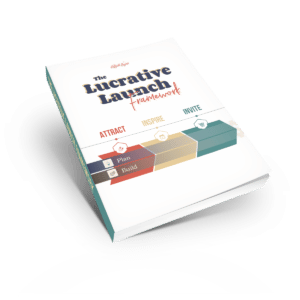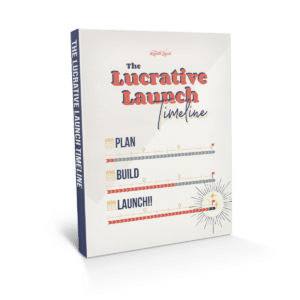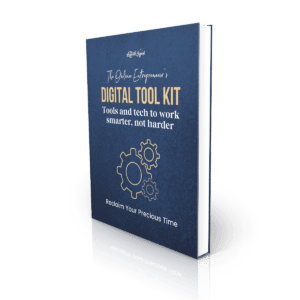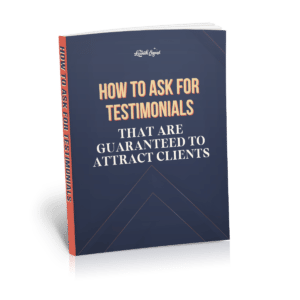As a digital course expert, author and speaker, she has supported over 1000 introverted entrepreneurs globally since 2015. She helps introverted coaches and consultants create high-value offers that connect with their clients while maintaining their own energy boundaries to avoid burnout so that they can achieve the sustainable income and lifestyle they desire. She is the founder of The Introvert Way® and her first book, The Introvert Way Roadmap was published in 2021.
Connect with Susanna Raey:
[00:00:00] Jeffrey: Welcome to the light in your launch podcast today, we're talking about how to build your business, even if you're an introvert like me. So stay tuned.
[00:00:57] Jeffrey: Welcome back to the show. There's a big shift happening and it's all to the benefit of introverts and business. Work life balances are being reset and the future looks brighter. For many entrepreneurs, business expectations are changing. Now you can create a business without borders, serving clients around the world without having to work.
More hours or leave your home. I'm Jeffrey Sao I'm back again with Katie Collins. And today we wanna talk about the introvert way and how to harness this amazing superpower to help you build a thriving business. Katie, please tell our listeners who we're speaking with today.
[00:01:40] Katie: She is Europe's number one, online business coach for introverts on a mission as a digital course, expert, author and speaker. She has supported over 1000 introverted entrepreneurs globally since 2015. She helps introverted coaches and consultants create high value, offers that connect with their clients while maintaining their own energy boundaries to avoid burnout so that they can achieve that sustainable income and lifestyle that they desire.
She's the founder of the introvert way. And her first book, the introvert way roadmap was published in 2021. Welcome to the lighten, your launch podcast stage Susan Ray.
[00:02:25] Jeffrey: Welcome
[00:02:26] Susanna: much.
[00:02:27] Jeffrey: welcome, Suzanne. It's really nice to have you here. Could you tell us a little bit about your background and how you kind of stumbled into this work?
[00:02:35] Susanna: Uh, well, my background in this space started quite a long time. Again, this will make me start feeling a bit old in this space that I've actually been working online since 2005. because back in 2002, I first left British shores to live abroad. And I had a huge fascination with entrepreneurialism and I did an MBA focusing on the powers of entrepreneurialism and then even strategic networking with that.
And that led to launching my own business when I was living in Switzerland at the time. And luckily for me, As I was moving sort of internationally, I've sort of lived in the us as well and France and France, twice and America and Australia. along the way as well. But with all of this has been the rise of the digital age in terms of broadband technology.
And, you know, obviously back in the day it was. Skype and we've now got zoom, but what it's meant is I could start and continue working online. And in fact, helping fellow entrepreneurs set up and show themselves. So I was there right at the start, helping businesses set up their very first Facebook pages when it was all like, oh my gosh, what should we be doing?
And so that's very much the basis. But I was sort of the power behind the scenes, which I'm sure lots of introverts listening will be going. Yeah, that's my happy space. and so for a long time, I was supporting startups and entrepreneurs getting themselves visible, opposed to myself, and that's kind of how it all started with the trail around the world.
[00:04:23] Jeffrey: Now could you define a little bit, uh, what, what it means to be an introvert?
[00:04:30] Susanna: Yeah, absolutely. So if we go back to Carl Young, who actually defined the whole I introversion and extroversion scale is he defined an introvert as someone who gains energies. By being alone. So this isn't about being like social or socially awkward or anything like that, or shyness it's really about your energies and also where you gain your ideas and inspiration.
So psychology today sort of expands it a bit further and says. Introverts tend to like, to sort of have their inner life being very vivid. And that's where the ideas come. Whereas extroverts, the ideas come from like brainstorming out loud and bouncing ideas off people. And so, and again, with the energy and extrovert will have the energy when they're in a space with other people.
Whereas the introvert is very much, no, like just leave me alone, please. For a little, I need to re-energize.
[00:05:33] Jeffrey: It's so true. In fact, whenever my wife and I, my wife is, you know, pretty extroverted and I'm very introverted and, uh, she'll be like, let's let brainstorm ideas. And she's got this idea, that idea, she's saying this, saying that, and like, I am totally silent. She's like, why aren't you participating? I'm like, I totally am.
But it's all happening inside here. it's all happening silently inside here, but it's happening. Don't worry. Keep on going.
[00:06:00] Katie: It's so funny, Susanna, the first time we spoke with you was on our summit and I was like, oh, I feel like this is like business partner therapy right now.
[00:06:08] Jeffrey: Totally.
[00:06:09] Katie: finally understanding my business partner.
[00:06:14] Susanna: Yeah. And I've kind of learned along the way that I've had to teach myself that I'm like either physically nodding to show I am listening, like, because introvert's very good at active listening, we will be listening to every single word. An extrovert needs a reassurance verbally. That they're being listened to.
Whereas an introvert will just be listening. They'll be nodding, they'll be thinking, and they'll be going through, and there'll be a million ideas happening inside. And only when they've tossed out the other 999,000, will they say the one that they think works? Whereas extrovert will be, oh no, this is silly.
Oh no, that one's silly. Oh. But I still want to talk about it and I'm married to an extrovert as well. So I do think, you know, opposites of tra it's good in partnerships. To have the introvert and the extrovert, and we can work incredibly well together, but we do need to recognize that balance
[00:07:11] Jeffrey: you know, I think that's so important. Yeah. That, that, because you're right. They, they do attract. If they, if they don't know how the other person works, then it's so frustrating. Right? Just like our con my conversations with my wife, if she didn't know I was an introvert, she would just say, why aren't you participating and kind of be frustrated or whatever, but she knows, she knows I'm mulling it over.
I'm tosing out the 999,000 other ideas. And focusing on the one that actually kind of works, you know? So it's like, you've gotta, you've gotta know. Who, you know, you gotta know your audience. That's that's for sure.
[00:07:48] Katie: This reminds me, um, of, I don't know if you're familiar with Sally hog's head's work. Um, her quiz and book. It's like how the world sees you, the fascination advantage. Are
[00:08:00] Susanna: I've come across it. It was a while ago when I last sort of touched base with it, cuz she's been doing it for quite a while now. Hasn't
[00:08:06] Katie: She has. Yeah. And, um, that was one of my most favorite personality style assessments, just because it, as she says, it's how the world sees you, not how you see the world. And so it's understanding how you come across. I really, really appreciated that. Anyway, what came up in it was, um, this sort of personality style that was called the mystique.
And when I read it, I'm like, oh, I am none of that. Quiet. Right. Like thinking through ideas, but not sharing any of them. They're the kind of person at a staff meeting that might go back to their desk after the meeting and email their boss, their ideas, instead of raising their hand, you know, where I am like the one in the meeting, like, no, that's not a good idea we should be doing.
Right. Like I'm very vocal and out. And so I just laughed when I saw mystique. I'm like, what's the opposite of mystique, cuz that's where I am. And, and I ju, but I loved, um, the understanding that you needed people on your team that are that personality type because they negotiate better. Right. And they help.
Like they, they provide a, a balance to people like me. And so it, I think it's why Jeffrey and I work so well together. But anyway, is what you were saying. I'm like, that just reminds me exactly. Of what she wrote in the book about mystique. It's that quiet contemplation. And then when they feel like they've come to a good idea or decision, then you know, it'll be shared, but yeah.
[00:09:35] Susanna: So I do have to say at this point as well, extroverts can really benefit the introvert as well at times with the bouncy energy and going right. Okay. Come on. We're doing this. We're taking action because one of the.
[00:09:48] Jeffrey: Yeah.
[00:09:49] Susanna: Sort of big, I would call rabbit holes that introverts can go down into is the endless research and not knowing when to stop and move into action.
And so having a partner who says, look, look, you've researched this to hell and back. And like, we need to move on now is really, good's good to have someone who helps you. Get out of your head. And I guess that's kind of where I really focus with my clients, which is why I work with introverts, because I'm sort of at that space that you know, is so much easier to do for other people, should I say than for yourself?
So I've got my own business coach, but it's like you say, okay, you've got the right idea now. So how are we going to bring that out? And how are you going to show up and how are you gonna now be visible and move into action? For your business. And the thing that I've learned is when we're more introverted in nature.
We want to be, we tend to be a bit more strategic about this. So once we understand the strategies, the bigger picture, the why we're more than happy to move into action, but sometimes we need like that mother bird pushing us off the nest and like making us fly in like, okay, now's the time you just need a bit of validation that now's the time that you can do it.
And I know you guys with the launch squad. Absolutely. It's helping people go, okay, we're set and we're ready. We can do it.
[00:11:19] Katie: Yep. Yep. Um, alright, well, let's talk about, you know, we're all kind of business coaches here. I don't know if Jeffrey would call himself a business coach, but he is, uh um, you know, so there are a lot of coaches out there that focus on teaching. Our clients to, you know, look at the metrics. Um, you need these specific platforms because I get an affiliate fee when you sign up for one, right?
um, tech I, and I'm, I'm, I'm kidding, but I'm not because I've been, uh, I've I've had a coach do that to me. You know, you gotta sign up for this. Platform only to find out she was making monthly on me, you know? And I'm like, I already paid you a good amount of money. um, so we don't actually do that, but, um, you know, so it's just kind of that tangible stuff that, oh, this is what you need to focus on.
And Susanna, I know, um, you share, you actually encourage your clients to focus on something else. So what is it that you think should be at the center point of focus for your clients to build their business?
[00:12:24] Susanna: For me, it's the human, it's a human centric approach because for me, it's not B to B, B to C it's P to P it's person to person. And. Is where you find the growth it's through relationships and it's about communication, connection and messaging, and how you connect with the humans you wish to connect to in your world.
[00:12:51] Jeffrey: Uh, relationships are for girls I just had to throw that. I just had to
[00:13:00] Susanna: You sure. You're not a hermit there, Jeffrey
[00:13:02] Jeffrey: Yeah.
[00:13:05] Susanna: but this is the funny thing is like everything in marketing is marketing is relations. At the end of the day and you know, the best marketers in the world, let me quote someone like Seth golden. He gets that absolutely down to the T and it's all about the human connection and which is why with his book, you know, start with the why.
That's about the human connection as well. It's like, why are you doing this? What's the passion behind it because anyone who started a business has done it because they've got some form of passion that has led them to walk away. From what to be honest is the easier life of corporate where you just rock up, you get paid, you can turn your brain off.
At the end of the day, a business owner, you are on 24 7. Even if you're taking time. You can't really close your brain down. So it's the harder option and you need to rely on your passion and the connections, and even the most introverted of clients who I've had still at the end of the day, admit. What keep gets them up and keeps them moving.
Is their client connections at the end of the day, because I work mainly with coaches and consultants as well. And so they've got this passion to bring about a transformation and a change in someone's life. And this is where
yes. Metrics, you know, that basic data. I don't say ignore. It still needs to be there, but I start with the human side in terms of the messaging, the connection. And for me, that's what I call the business foundations. And then as you begin to scale and launch and grow. That's when the data can give you the deeper knowledge, cuz you're now working with far faster numbers.
And data's good at that point because you know the human brain, you know, you can't have a million connections in your head of people. It becomes impossible. But when you're working at this very sort of kernel startup stage, which is where I help a lot of my clients, it's the human centric connection.
That makes a difference as to whether they reach. That next stage in terms of being able to scale or not, because if they don't get who they're working with, the people they work with, don't get them and you don't get any conversions.
[00:15:28] Jeffrey: Yeah, I love that. And I, and I say that so jokingly because, um, you know, my part of my favorite part of business really has been, you know, I don't know a better word for it, but just making friends online. Right. And it's, I I'm an introvert and I don't, uh, Always feel comfortable going into a new, uh, uh, client relationship, but it's, it's always turned out, uh, beautifully and it's, that's, that's kind of the beauty of it.
And the gift of it is that I do get to work really one-on-one with people and, um, discover what they're doing and be interested in what they're doing. And then suddenly it's this beautiful, um, gift.
[00:16:18] Katie: Yeah, I Jeffrey and I had a meeting with, uh, our team the other day and we have a client right now. That's in the middle of a launch and something didn't go well, day one. And, um, Our, our team that was a part of her launch and supporting her was stressed out that something was not wor you know, like the slides weren't showing and she couldn't get the attention of the presenter to say your, your slides aren't showing.
Right. And so she was like having like heart palpitations and, you know, and Jeffrey. And I were like, thank you so much for caring about our clients as much as we do right. Our clients are our friends and we care so deeply about their success and the success of their launch. Of course. And it's so important to have team members that get that human centric focus.
Um, you know, as opposed just like, oh, whoa, it's her problem. Right? Like obviously we wouldn't have someone on our team that acted that way. So it's so
[00:17:17] Jeffrey: We have, we have the best team, best
[00:17:19] Katie: we literally have the best team. Yeah.
[00:17:24] Jeffrey: um,
[00:17:25] Katie: heart in it and, and, um, seeing the, you know, seeing these folks as our friends that we care about, you know, I think makes your business a much more enjoyable place to be.
[00:17:35] Jeffrey: You know, in your book, you talk about, Design thinking phases. And I'm curious, what, what is this design thinking and what are these phases and, and what is this interesting concept?
[00:17:54] Susanna: design thinking as a term goes back to an organization called ID O I D E O,
which is a us based. And. They were the first people to actually take from the traditional design. In fact, my first degree was in design. So I am a, what I call a traditional sort graphic designer, textile designer. I've got a design based background and how you come up with creation of ideas is very much, there's three phases that you go through.
And the design thinking concept has moved into the business world. As well in terms of taking sort of the bigger concepts and working it through to come up with good solutions along the way. And the reality of it is, is that no idea just sort of pops out of the effort fully formed. There is a process that happens.
So in the same way as an artist, if you go into. Any art studio, you'll find like little scribbles and doodles of ideas before they're beginning to make the bigger thing. And they might make a maquette, which is a small model before they even then create the larger, the finished object, because they're sort of playing around and making prototypes.
And so idea thinking goes through the three phases of inspiration ideation and implementation. and in each of these, there is this sort of deep dive into it. So the inspiration is, you know, it's the idea forming and creating and developing that muscle. Inside of you to actually come up with lots and lots of ideas.
And some of these might be no good. Some of 'em are good, but it's like teaching yourself to value those ideas. And then when you get into the ideation stage, it's about testing. It's trialing things. It's not just about waiting till everything's possible. So you're testing things and in the business world, this might be things like lead magnet.
That people are aware, like how do I bring people into our world? I don't think I've met a single business coach life coach, anyone in the space who's created the perfect lead magnet that brought in all their clients off from the top. We all,
[00:20:23] Jeffrey: had to change it ever.
[00:20:25] Susanna: Never, never, yeah. You've never had to change it.
It's like, and if you're listening and that's, you, you know, you are the unicorn in this space.
[00:20:35] Jeffrey: Please leave a comment. We wanna know who you are.
[00:20:38] Susanna: Absolutely. What's your magic, you know, can we have a piece of your hair and put it together because it's so important that ideas form. And this ideation stage is really important for a business to grow successfully as well is to allow yourself that time and space to play basically. And it's linked to experimentation as well.
And so I always encourage people to not try and get too precious about their ideas, because you might have 10 idea. None of them might be right. But out of the next 10, there might be one that kicks it off, but you'll only know by putting it out onto the market and testing and trying. So it's a bit like, you know, you sort of gotta fail forward and fail fast as you're testing and anything that you think of, you know, big name things like Facebook.
What we're looking at these days is nowhere near what came out of the door in terms of Facebook version 1 0 1. It's incredibly different along the way, but it wouldn't have got to what it is today without all that testing. And again, even in that case scenario, that started in a small, safe environment of their local university, local intranet testing seeing is this good?
So equally you don't have to go, you know, with a blast out onto the worldwide stage, you can sort of test in that smaller space. And that's, you know, when you're testing that these things all link together in terms of inspiration, ideation and implementation. Cuz if you're not implementing, if you're stuck in your head, It's going nowhere.
And this is the basis of the sort of integral design thinking is you need to sort of plan experiment, start more, grow, develop, test and test again. As you come to the final solution.
[00:22:40] Jeffrey: Oh, I love that. I love that. In fact, I mean, I, I come from a web dev, you know, background and, um, I remember having so many clients that would spend so much time. Tweaking this and tweaking that. And can I see that in this color? Can I see that in this color, should this button be blue? Should it be red? I'm like we haven't even launched yet.
Like what, why are we just, well, it's just, it's not, it's not perfect yet. I want it to be par. I've had websites like very, very, very simple websites. Be in development for more than a. It's like,
[00:23:21] Susanna: That's crazy.
[00:23:22] Jeffrey: I'm gonna launch this without you just, just launch it. Right. And,
[00:23:27] Susanna: I remember way back when, I don't know if it's still the case, but it used to take three to six months for the search bots to crawl. Website. So I'm like, Hey, if you've got a website, like launch it today and then keep tweaking, you can tweak it overnight, but we need to make it live. So when you really want to make a splash, you can.
[00:23:49] Jeffrey: Yes. And, and, uh, there's a, there's this I'm I'm totally. Blanking on her name. I think she created a company called the muse or something like that, but she gave this speech that was saying like the, the pro the gold is in getting it out there. And she understands it's hard because our businesses are like our babies, but the magical quote is even an ugly baby is better than no baby. Right. which sounds kinda weird, but mean, you know what she's saying is get it out there because it, when it's out there, that's when you start collecting data on it, is it actually working? Are people enjoying it? Do they not like it? What needs to change? Like that's how something becomes bigger than yourself.
Right. And if you think about it, that idea. Uh, something becoming bigger than yourself. If you are the ultimate control in its design and in its entirety and you believe it will be perfect when you release it, then that thing is ultimately smaller than you. And it can only be smaller than you because you created it.
Every piece of it.
[00:25:04] Susanna: that.
[00:25:06] Katie: Hmm. Yeah. I, I had to really learn the striving for perfection is an unwinnable.
[00:25:13] Jeffrey: Yeah.
[00:25:14] Katie: Right. And, uh, I had to replace perfection with excellence, you know, do I feel like, and actually that word came out of that. Sally hog's head test that I took the word excellence. Um, that, that was a big part of me. But anyway, just to relieve myself from the expectation that something is going to go, you know, flawlessly perfectly because it's never the.
And sometimes it's not our, you know, it's tech breaks down or whatever, but, so I love Susanna how you acknowledge, you know, for, especially for introverts, but for a lot of people, it's hard to implement people. They feel very comfortable in the learning mode.
[00:25:56] Jeffrey: Mm-hmm
[00:25:57] Katie: they've got notebooks and notebooks and they're taking all these notes.
And, you know, that was like one of our big focuses of our summit was don't just learn, take action. What is one small action step you can take from every single interview because otherwise it's just knowing your head, doesn't go anywhere. So, um, having the courage to put it out there and to test it and to get feedback and to remove the ego.
If it didn't work, you know, remove the, oh, they don't like me, or, you know, see, I knew I should have just stayed in my safety zone. Right. And I mean, Jeffrey and I are redoing, um, our course and it just feels like the thing is never done. We redo it all the time. and so I was thinking about that when you were talking like, you know, because it, we just, we get information, we have people in it, we see the results or no, Results or they didn't finish, you know, and we're like, oh, okay.
Let's make that video shorter. Let's make a template to go with it. Let right. So it's just that constant tweaking. Um,
[00:26:55] Susanna: Oh,
[00:26:56] Katie: of that could happen, you know, if we just were like, oh, it is just perfect. The
[00:27:00] Jeffrey: Yeah,
[00:27:01] Katie: you know, and the 1.0 version, every time I look at a video from the 1.0, which was just me before Jeffrey, I'm like, oh my God, my slides are ridiculous.
Like, it,
[00:27:12] Susanna: But you did it right. And that's, what's
[00:27:14] Katie: exactly. Yeah. Yeah, yeah.
[00:27:17] Susanna: And I always say, you know, like get, I always encourage all my clients to just take messy action. Take imperfect action.
[00:27:26] Jeffrey: yeah, yeah.
[00:27:26] Susanna: But take action. And I love the fact and that you've just highlighted the fact that in particularly in the online course creation world, people think it's a once and done thing.
It's not it's like it never is. . Yeah, exactly. Because we're all evolving and are changing and our knowledge, but the secret is instead is to create programs in such a way that when you want to update various elements, it's easy to make it in small elements. So don't make our long episodes make them short and easy.
Cuz then you can update them on the fly. As well, and it makes a difference. And particularly when you're working in a space that involves tech, that you are not in control of, you know, stuff can change tomorrow. Right. and you'll be like, oh, they've done a huge update. So now all my, how to videos or something are completely incorrect.
And it's like really understanding what the space is that you're in. And it's something I particularly encouraged. People to think about is if you're thinking about being in the online. A sort of service community and going between either a course or a membership is think about how evergreen your knowledge and expertise actually is.
Because if you are doing something that maybe tech based on things outside of your control, Memberships work far better because things are always being updated and people need the latest info. But if you are doing something like how to build a beautiful brand, those principles remain the same year after year and what they are today.
To 50 years ago, even they're not that different. Yes. There might be different tech in terms of how it shows up, but actually the principles and things like color psychology, which I've deep delved into the past myself as well, that doesn't change. And it's the whole sort of psychology and profiling and all these things when you're in that space courses make far more.
[00:29:35] Jeffrey: Mm-hmm
[00:29:35] Susanna: that you can do it and you, you can probably leave them a little bit longer. I'd probably say, like you mentioned Katie, that as you get feedback and you see people drop off, you might then just want to revitalize it for your own sake, but it might not be because the clients have said, oh, you need to update it.
[00:29:53] Katie: Right, right. Often they won't that's what's interesting is, you know, it's very infrequent that you're gonna get super negative comments. I think people are uncomfortable to, to do that. So that's when it is like looking at the, the data, like, you can tell if somebody completed your course or not, you know, now some people don't market as complete, so it's not, you know, but anyway, , it's, uh, it, it, it is, I think for, and again, I think for my personality too, like the striving for excellence.
There is this element of like, it's never good enough. And I have to calm down and say like, , it's, it's good enough to put out there, you know? Um,
[00:30:32] Jeffrey: And, and here's the thing, like, I think we've, we've all been kind of fed this myth of passive income where. The I, the concept of this is like, well, if you make a course that lives on forever and you get paid forever and you can, you get passive income. Right. And so that, that's kind of the model. A lot of people have when they come into this space and they're like, well, I made my course, well, it's not selling, how do, okay.
When does the passive income? It's like, okay, well now you gotta make it better. Like you gotta keep going, keep going, keep going. Right. So I, I think that's
[00:31:05] Susanna: you you've always got a market, right? Like, but there is no such thing as passive because even if you choose the marketing route of paying for ads, you still need someone to look at after the ads. That's not passive. It's not like you can put an ad out there and it lives forever. So there is no element of passive.
It might be less hands on serving. I'd agree with that, that
[00:31:30] Jeffrey: leveraged, leveraged income.
[00:31:33] Susanna: Yeah. Leveraged. I like that term. Yeah, absolutely far more than passive
[00:31:41] Katie: I wanna know, um, you know, being an extroverted person myself, sometimes I forget. Um, you know, as a former teacher, I had to do a lot of differentiated instruction depending on someone's, you know, Cho, uh, way of learning preferred way of learning, that kind of thing. I think it's the same way in the coaching industry.
I think we need to approach, I think, good coaches approach coaching. Coaching the person in front of them, instead of this is my cookie cutter model that everyone needs to do. So I'm not gonna tell all my clients to open up a Facebook group and go live every week because for some people that's not gonna work for them or their personality or even their desire.
And, and all of our coaching is based on the desire of the client, right? Like what's the vision that you have and then we'll help you get there. So what's your advice for extroverted coaches like me? Who, who just. Think about the introverted way, how can we make sure we're reaching our people in a group program, for example?
Um, so that they're not so quiet or, you know, cuz if they're not participating, I don't know. Are they learning? Are they, so what are your, what's your advice for that?
[00:32:45] Susanna: I think one of the biggest things in the group situation is don't wait for people to raise their hand. Instead call on people and ask where their thoughts are. And because what I find with people who are more introverted in nature is they will happily sit back and never raise their hand in a call because, Hey, we love learning and we we're like sponges and we'll sit and we'll be getting a lot from the call, but you won't know as a coach where the sticking point.
and this kind of comes back to this thoughts in the head place. Again, because again, when we're more introverted, we're probably going through like loads of questions in our head and then throwing them out, throwing them out and thinking that's not the one I can ask. That's not the one I can ask. And so the hand never gets raised.
But I know when I'm coaching and I'll say, you know, oh, and Janet, what's happening with you this week. And they go, oh, well, I'm just here to listen. I don't really have much, but actually I've just got a question and a question always comes out. You just got to give them the space. And the opportunity to ask that question.
So you can do it in such a way. Like I would go completely against calling anything, a hot seat that like scares me silly. like, don't put me on a hot seat and tell me, I've got like five minutes to share my life story and my question. So you know where I'm at. And I think some of that as well is as a coach is make sure you do your homework a little about who's in your cohort.
And who's on this. So people shouldn't have to say, oh, I'm doing this because if they've paid you good money to be in your coaching program, you should understand where they're at roughly. So when they have a question you can sort of come in and give them really sort of succinct answers. And another that's sort of in the sort of vocal side of things, but the other side as well is if you are running group trainings and then, you know, people might say, oh, like pause for a minute.
So you can write down your answers or fill in your worksheet. Don't talk over that. Don't play loud music. just like some silence is actually really good because. What you'll find is the music or the chat stops the introvert focusing on their thing. So, I mean, I've tended in those group scenarios where that is happening.
I'll put the whole thing on mute because I can't get my ideas down, you know, and this is when the coaches said, right, you've got five minutes put down, you know, like outline your course or do whatever it is. So. Yeah, yeah. In five minutes. And we all know it is like getting started when we're in that space.
But even to get started, you. You want to brain dump it. So it's, and it's where actually online is quite nice when you're in zoom rooms. And I sometimes call introverts are the text droves because in texts, a messaging, they suddenly come out in personality and you get the gifts thrown down. You get the Ry humor pops out in chat that would never be said out loud.
So I find in the sort of texting space or in. The sort of playing field levels out a bit more,
[00:36:16] Jeffrey: cuz we get to edit it. We get to edit it before we hit send.
[00:36:21] Katie: Uh, that's funny. I do notice Jeffrey is so much more active in groups where he can type.
[00:36:28] Jeffrey: Yeah.
[00:36:29] Katie: Right. Like we, we're in a couple of groups, like in telegram or whatever, and he's so active there and I'm like, why aren't you like that in our own group?
[00:36:36] Jeffrey: Yeah, because I can type, delete type, delete, delete type, type, delete, type, delete, and then hit send
[00:36:42] Katie: Yeah. You know, it, that just sparked something for me. Um, You know, like I really like to play music in the background. I'm a big fan of Boral beats and the power of focus music and, and how that can almost eliminate the blank page syndrome for me. Like when it's too quiet and I'm sitting in front of a blank page, my mind is going everywhere, but it just sparks something in me where I'm like, okay, next time we have an event, we are gonna offer a breakout room for people who prefer silence.
And those folks can go into the silent breakout room and we can play the music in the regular room. And then you can advertise in zoom, you know, five, five minutes left or right. And they can maybe banter the way they want. And yeah, that's a great way to just reach the needs of, and the personalities of the different people.
[00:37:30] Jeffrey: It really shows me how much of, um, the current online entrepreneur space is skewed towards extroverts. It's really. Heavy heavy on the extrovert, uh,
[00:37:48] Susanna: And it's not too. Yeah. It's not too surprising. When you think about that extroverts yearn for connection and constant connection and the energy, and they get energized by the energy. So they're running online events, it's all like, go, go, go. And like, ah, gosh, I remember about five years ago I attended a conference and nine o'clock in the morning.
They rack up the house music or it was something horrendous. It was hi and horrendous to me, but it was funny. I just looked at the room in front of me. There was like 250 people in there. You could tell at a glance who were the extroverts and who were the introverts because the introverts had sort dispersed towards the back to the sides and were going. I've got a whole day ahead of this. Like I need to maintain my energies. You are not getting me up and dancing. I might dance at the end of the day when I can just dance till I'm spent. And I don't want to talk to people cuz then when I'm dancing, I don't have to talk. You see? So it is win-win in that situation, but I'm like in a conference situation, it's like, no, don't do that to me.
It's like, I don't mind some music, but not this like, boom, boom, boom.
[00:39:01] Jeffrey: Yeah.
[00:39:02] Susanna: And as you say, those sort of by normal, um, beats and things, I can't get on with that at all. I need silence to work and creating in. Sometimes I might listen to instrumental music, but very rarely I'm more a silent person. It's all completely quiet in my office.
[00:39:21] Jeffrey: yeah, I put on the Han Zimmer, the, the soundtracks I've just got literally 20 all day, all day loops of soundtracks. Han Zimmer being shout out to Han Zimmer
[00:39:36] Susanna: But as you say, it's different things for different people and
[00:39:40] Katie: And just acknowledging that and, and giving people an opportunity to opt out of what you think is, is the norm or the way, because, I mean, I learned how to host live events. Like I spent five, five years in a live event community, both as a, um, student and then as an employee of the team. And so we ramped up the music.
High energy, get people ready for the day. Um, during breaks, we brought people back with high energy music. You know, we had someone on the stage leading a dance so that those, you know, we thought, oh, those introverts that just don't know how to dance. Right. Like, and I'm, I'm, I'm shrugging my shoulders, like how silly of us to have thought that, but we did, you know, oh, here we'll lead them and then they'll know what to do.
Right. As if it's like it it's we replaced introvert with awkward. When in reality, the introverts were like, please, for the love of God, just stop all of it. I mean, part of our job was going out into the hallway and bringing people back into the. You know, and, and so it's just, it's just interesting. Um, and now I look back and go, oh, I wish I understood a little bit better.
That the more you allow people to process the way their body and their energy wants to process the better off the event will be for everyone. But instead we were insisting that everyone have this like level of energy and if they didn't, I think they didn't feel like they belonged. and that was really my job.
I was like the engagement coordinator and I was meant to make Fe people feel like they belonged. And, um, and I, I just didn't understand some of these nuances because I was that person that loved dancing. I loved all the music, you know, all, it just like worked for me. So I'm like, well, obviously this is true for everyone
[00:41:30] Jeffrey: Right. If it works for me, it must work for
[00:41:32] Katie: And so now I understand that's not the case. Um, you know, and at the end of the day, It's not about getting people to go on your vibe as a, as a business coach or as a leader, it's about getting people to transform, right? Like that's what we want. And so if Susanna needs to transform by having quiet space in order to get that breakthrough, um, I need to make sure that I'm providing that as the leader, you know, so that, I don't know.
That's my biggest takeaway.
[00:42:08] Susanna: and I mean, don't get me wrong. It's like, I love music and things and having music cues to go back into a. Brilliant. It's better than the old theater bells, right? Which go 1, 2, 3, you've got five minutes. One you've got one minute, you know, and I know this cuz I used to be a stage manager at one point as well.
And I'm like, music is. To bring into the space, but it's also, I would see that, you know, if you're planning events and if they're now back in person as well is make sure there's quieter spaces that people can go to. I would always find myself exiting the building, trying to get some fresh air, but then you'd have great conversations.
In those quieter spaces, cuz you could then hear the person you're talking to for a start.
[00:42:50] Katie: Yep.
[00:42:51] Susanna: And so I'm beginning to see that happening now. Actually I think the more as introverts are going, ah, we're here too.
[00:42:59] Katie: Yeah. Yeah. And, and we're, and there's nothing wrong with us.
[00:43:02] Jeffrey: right,
[00:43:03] Katie: right. It's not that we're awkward. It's that we choose to not be like you . Right. Like it, it is that, you
[00:43:11] Susanna: Yeah. If we're not whooping and cheering doesn't mean we're not enjoying ourselves. We can be having a brilliant time, but just feeling really good inside about it. Mm-hmm oh.
[00:43:22] Katie: And I was gonna say, you know, the people that you're meeting outside are more than likely like you in that, they're also escaping the mayhem in the room, you know? And, um, those are some great, some great friendships that you can make. So I do miss the live event industry. I MI you know, like sometimes you just can't get that at zoom.
Um, and, and I do, I miss it, but I just. If I go back and start hosting events again, I'm gonna do some things really differently just to understand, you know, and I think the more we learn about people, um, neuro divergent people that it's, again, like just, I think getting rid of the, the word norm. And just letting people show up and give them access to whatever they need to enjoy themselves.
Right. So that the transformation can take place.
[00:44:16] Susanna: I can totally see you setting up, you know, it might be a once a year or once every two year event where you want to bring your people together. Cuz I still love meeting people in person. I don't want to do it every month, but I do. There is something special. About coming together. And in fact, I was talking to a lady this morning and it's a group that's probably is, they're gonna be meeting sort of monthly, but they want me as an expert sort of coming in.
I said, well, I can commit to quarterly . And that to me is a nice sort of series. And I'll have sort of monthly online meetings in the meantime that if they sort of run a Q and a clinic, but actually in person once a quarter. That's like enough for me, because I'm busy with my work anyway. And if I attend any in person event, that's the day gone for me as well.
That's the other thing to realize I can't do work before and after, because I'm getting myself ready for the event in terms of mentally. And then after I will leave and I'll have this fuzziness in my head and I've gotta like decompress and I'm exhausted. So no other work happens. On the day of a natural event, whether actually it's online or offline in that situation.
[00:45:32] Jeffrey: Amen. Amen. Oh my gosh. You finally get me. uh, Susanna. Before the call, you mentioned something else you're doing. Uh, what, what is this? What's next on the horizon for you? What are you working on right now?
[00:45:50] Susanna: So what I'm working on right now, in fact, it has launched is an evergreen, which is in the industry, means the doors are open every day program called the introvert business booster. And this is particularly. Specializing in bringing in these ideas, the human-centric ideas with frameworks on how you can promote your message without always talking.
So I'm a big advocate for show and talk, you know, like show first show people how you provide, how you connect. And I've got a lot of visual framework. That I help people get the ideas out of their head and through the introvert business booster, I take them through the five foundational phases that I see every sort of coach or consultant really needing to get solid on.
Before they're ready to scale because I see a lot in our world talking about scaling and taking it to the next level. And I felt this was the missing gap that people really needed. It's in some way seen as the unsexy bit, you know, it's the foundations like, no, one's interested in that. But actually you can't scale fully before you've got this basis of understanding.
So I'm running this in a couple of ways, actually. And like going back to, um, your questions on like, how do you bring people together? And the basic version of it, I actually offer personal feedback, but it's through. Sort of workbook. That's a Google doc based workbook where people can tag me and then I'll go in and give written feedback in there.
So there's no Facebook community. There's no group in that sort of level, but they still get personal feedback. And the validation of yes, you are going in the right direction. Yes. This is looking clear or no, maybe you should dig down a bit more into. But then at the higher level, I do also have, I've just got like monthly calls and off Facebook in an app called Geneva.
I actually use in terms of having a Q and a sort of session, because I dunno about you guys, but I'm seeing more and more people going. I don't want to be on Facebook because it drains my energy could be just my introvert people because they go, they get sidetracked when they go on Facebook. And if it's for.
They want something just to side of it. And that really helps. So it's about doing this balance. It's not just about helping them, but serving them in the way they
[00:48:31] Jeffrey: Okay. Okay. Hold on, hold on, hold on. This sounds really interesting. So, so you you're, this is interesting to me, you're you, you, you, when somebody joins that program, they get their own Google doc with like questions in it, and then you guys actually have like a conversation there, like right in the Google doc.
[00:48:52] Susanna: Yeah.
[00:48:53] Jeffrey: I love that idea. And then what is this Geneva thing?
[00:49:00] Susanna: I was gonna say so with Google doc, I dunno if you've come across, it has a facility that you can do a plus and a comment and tag. So it sort of pops into my inbox.
[00:49:11] Jeffrey: Okay. Yeah, yeah, yeah.
[00:49:12] Susanna: it. So that's how the conversation as it's completely unknown time, and Geneva is an app it's relatively new. It's kind of akin to slack or in the sense that you set up different rooms.
And it's completely free at the moment. So you have it and it's on the phone, or you can have a desktop version if you've got a Mac or in an internet browser, if you don't, they've only got that the download, but it gives you the notifications, but it gives you everything that you might in a Facebook group, you can set up events.
And like event reminders for any calls, you can share the gifts. You can add files, you can put photos in, so you can have the conversation. And I've got like three different rooms in there for my people. So one is just announcements for me, like, you know, da, da, this is happening. Then there's a Q and a room where they specifically have a question.
And then we've got like a chat room where they can celebrate their wins, share their struggles. Or if they're looking for experts, It's more like a general chat space and it just works really nicely. And people like the fact that it's separate, cuz I'm finding a lot of people as well, like WhatsApp. isn't really very good in the sense that if you join after the start of the conversation, you don't see it.
And people are personally on there. So I'm finding something that's very different for people with work. And then they, oh, if there's notification, I kind of want to see that because that's part of the program I've bought into
[00:50:46] Jeffrey: I love that. I'm totally diving into this app soon and , I wanna find something that's off of Facebook.
[00:50:56] Susanna: I have this habit. When I talk to people, I, I sort of throw in something new and they go, oh, you've just given me work to do. And I'm like, oh, I've given you.
[00:51:05] Jeffrey: I knew, I knew you had come to the table with something I knew you would. I love this Susanna where, where can, uh, two things, anything to, to wrap this conversation up and with a nice little bow into where can people, uh, get a hold of.
[00:51:23] Susanna: I think one of my favorite things to leave as takeaway advice, if you're more introverted in nature is well there's four words is create before you consume. So if you need to create anything in your business, Do that before your energy starts draining when you're consuming other people's things, because that's the essence of being introverted is your higher energy when you're on your own.
So start your day with creation and then move into consuming or serving afterwards.
[00:52:01] Jeffrey: I love that. I love that. And I, you know what I not to cut you off, but I, I didn't. I didn't realize that until you just said that. But I noticed like if I were to start my day with Facebook, which I never do it's cuz it never works out. But if I I've done it in the past, right. And I like I'll, I don't know something gets me on Facebook.
I'm useless the rest of the day useless. Oh my gosh. Okay. Sorry to cut you off, but that's I love that. I love that piece.
[00:52:33] Susanna: Yeah. It's like learn where I call it your golden energy. And you know, if your golden energy is at a different point in the. By all means, you know, if you like groggy and can't think and reliant on coffee or something to get you going in the morning, by all means, do your socials or something at that point, but always harness your golden energy.
Know when that happens in the day or at which day of the week. For me, that's really, really. And link to your other question. Where can people find me is a great place is come across to Instagram. My handle is at Susan Ray. I'm sure in the show notes, you'll have all the proper spellings for this. I'm actually also on LinkedIn and Facebook.
And I do run a community there, but find my name and you'll find me on all the platforms.
[00:53:27] Jeffrey: Awesome.
[00:53:28] Katie: definitely link to your book as well, because I think, you know, it's, it's what you were talking about, um, is not just for introverts really. Right. Um, I think, and I also think some people wouldn't maybe coin themselves that, but they'll read your book and go, oh wow. This, this sounds refreshing.
Right?
[00:53:49] Susanna: Yeah. In fact, some of I do actually have some extroverted clients and they go, you, you want to just say it's designed for introverts, but loved by all. Nice.
[00:54:00] Katie: love
[00:54:01] Jeffrey: Yes,
[00:54:03] Susanna: because in the same way I will attend extrovert led trainings and I'll still love it, but I've gotta take it at my speed. And I think this is the point I'm trying to level that balance. As you mentioned, Jeffrey, that in the online space, it's very extrovert biased right now. It doesn't mean that us introverts aren't taking away huge value from those trainings.
[00:54:25] Jeffrey: absolutely. Yeah, absolutely. Uh, Susanna, this has been illuminating and wonderful. Thank you so much for being so generous with your time.
[00:54:37] Susanna: It's been a pleasure to talk to
[00:54:40] Jeffrey: All right, everybody. If you enjoyed this, please head over to wherever you're listening to this. Right now, hit that, uh, five star review. Leave us some kind words and, uh, check out all the show notes and how to connect with Susanna at the launch squad, lab.com forward slash episode 75. We'll see you next time.
Be the first to know
Enter your name and email and we'll let you know when new episodes release.
About the Show
The Lighten Your Launch Podcast is for Coaches and Course Creators who want a lighter online launch experience. Maybe you’ve done a few launches already, and feel exhausted just thinking about it! Or, it’s been one of your goals, but you don’t know where to start.
Tune in to learn from our team of experts, The Launch Squad, who aren’t afraid to dig into all aspects of launching: sales, strategy, technology, mindset, funnels, and even a bit of woo to get you through the toughest times. Let’s put a stop to perfectionism and procrastination, and finally take your launch from intimidating to money-making!

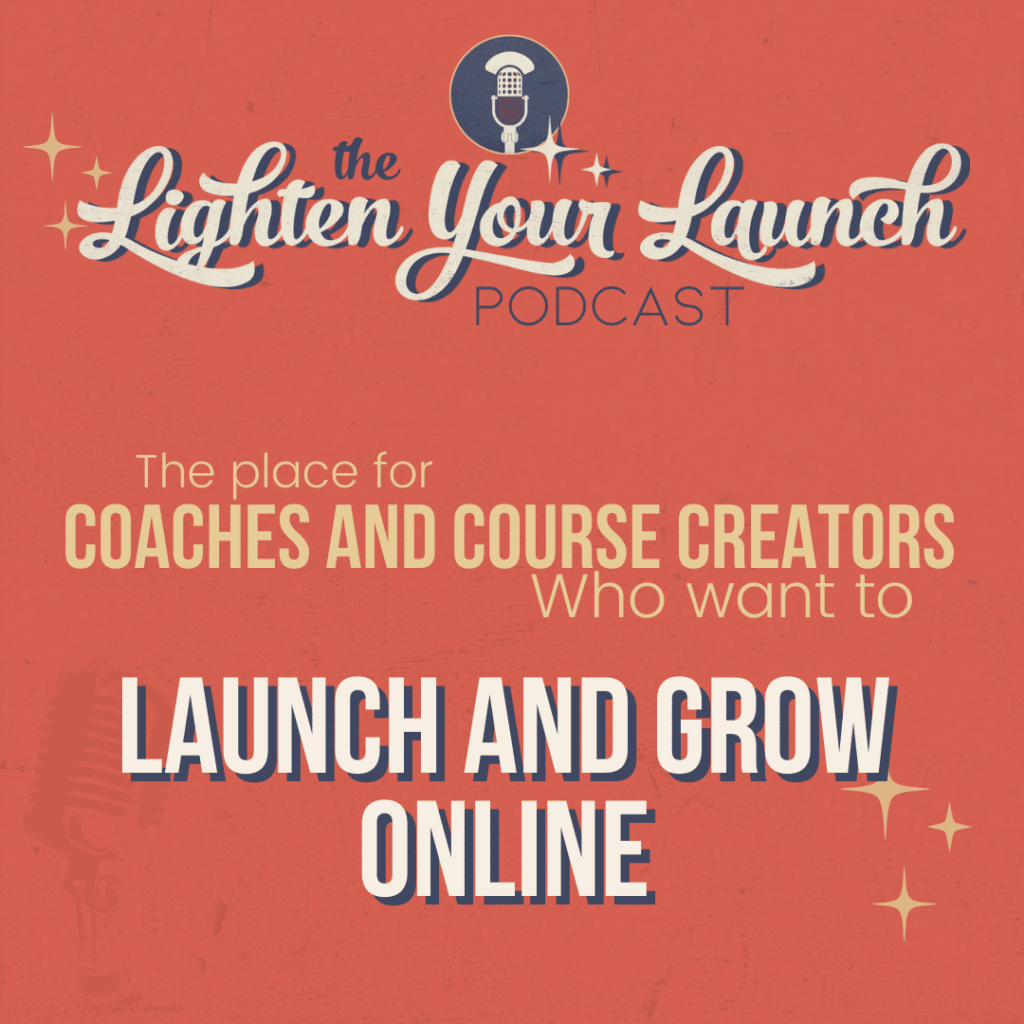
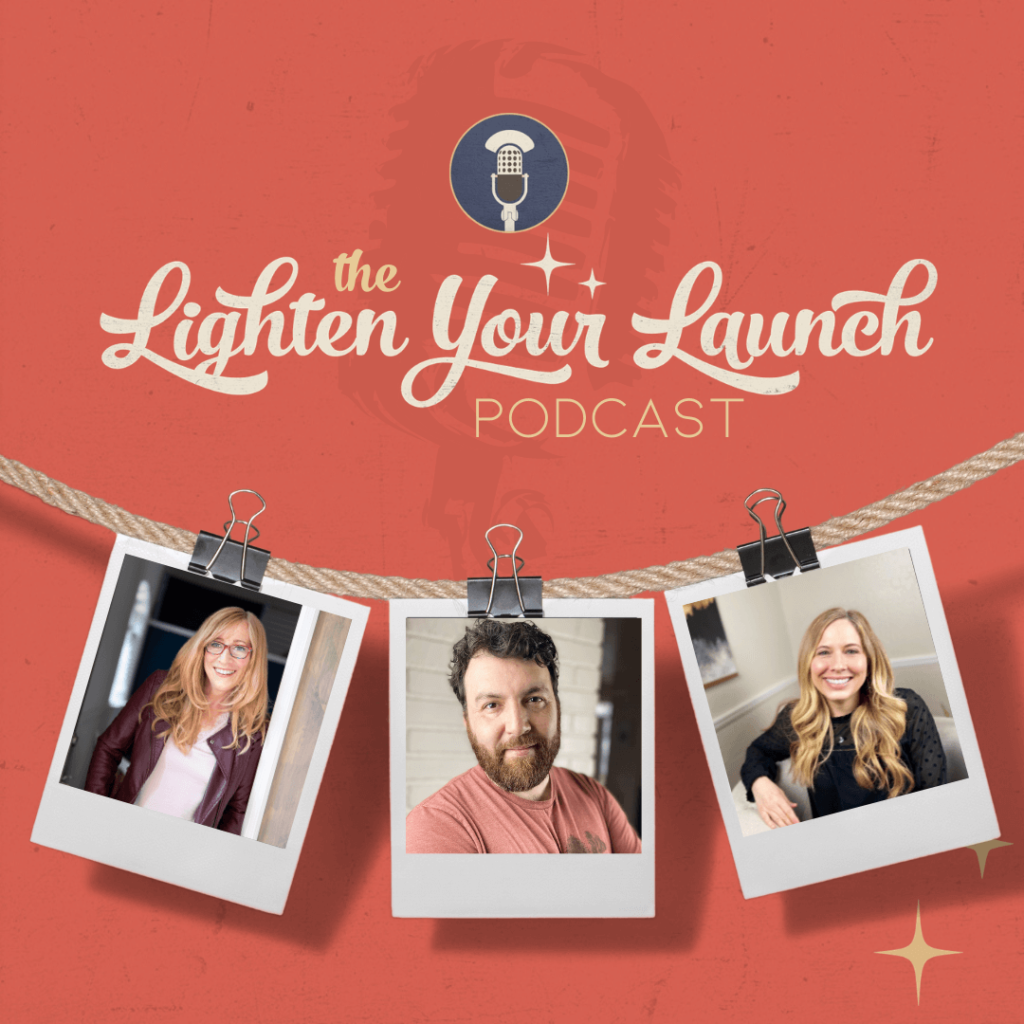


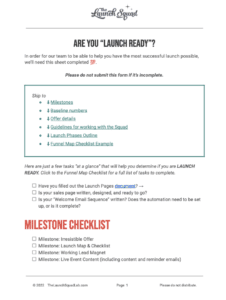
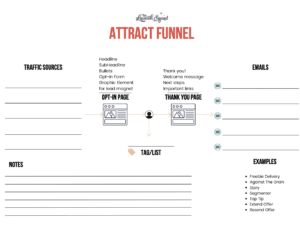
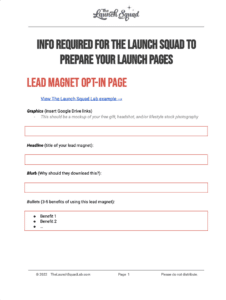
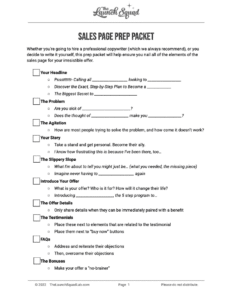
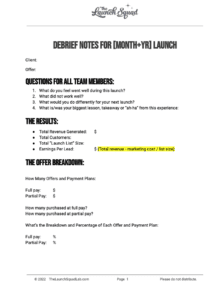
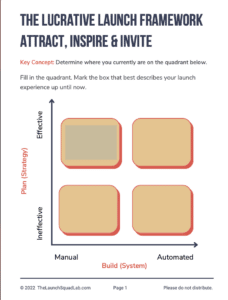
![Marketing Launch Calendar [TEMPLATE]](https://thelaunchsquadlab.com/wp-content/uploads/2023/05/Marketing-Launch-Calendar-TEMPLATE-300x260.png)
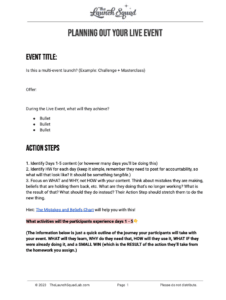

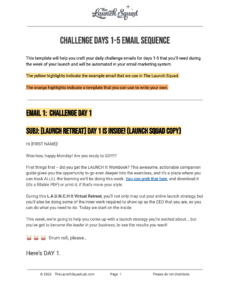
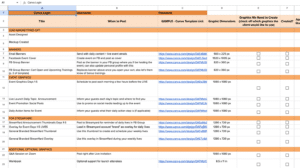
![[Updated] Email Templates for Launch](https://thelaunchsquadlab.com/wp-content/uploads/2023/05/Updated-Email-Templates-for-Launch-223x300.png)
![[REVISED] LS Pitch Script](https://thelaunchsquadlab.com/wp-content/uploads/2023/05/REVISED-LS-Pitch-Script-2023-226x300.png)

